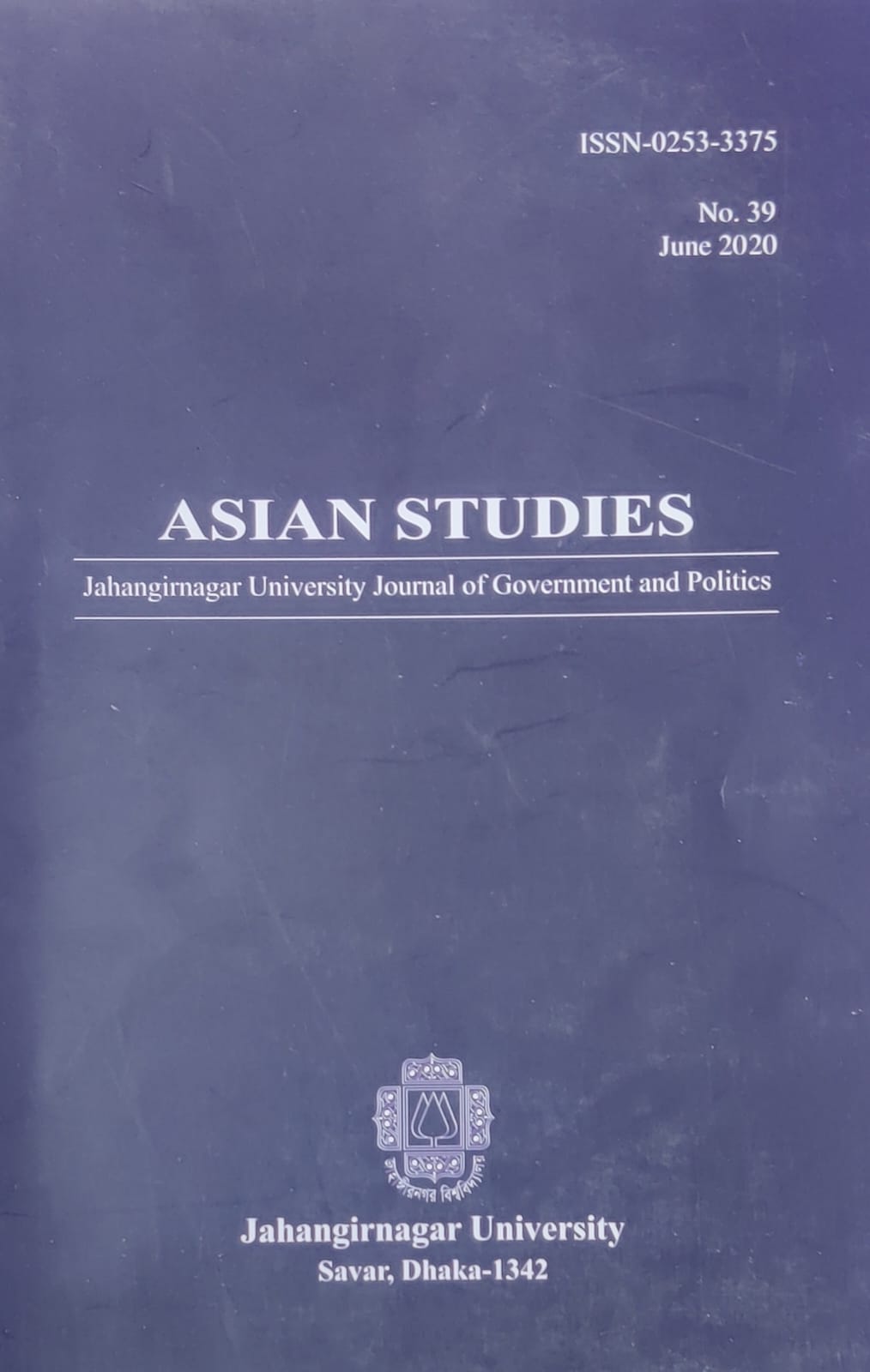Community based Organizations (CBOs) in the Climate Change Governance in Bangladesh Policy initiatives and challenges
Main Article Content
Abstract
Bangladesh is one of the most climate change vulnerable countries in the world. Effective
governance of climate change issues is crucial for the recently graduated lower-middle income
country for her development juncture. Community based Organizations (CBOs) is assumed as an
important tool for effective climate change governance to promote participation from communities,
and accelerate innovative solution from the root. Climate change governance is understood as a
process of multitier governance where the role of the CBOs is important along with other stake
holders. This paper seeks the role of CBOs in climate change governance in Bangladesh both from
policy and institutions level. It is noticed that CBOs in Bangladesh get less importance in mainstream
policy framework at local, regional, and national level. It is also observed that most Community
Organizations working on climate vulnerabilities and adaptation are either NGO facilitated or NGO
funded organizations. In fact, government expects role of the CBOs only as secondary agencies,
and high priority is given to the NGOs. The government financing plan is centered on the NGOs
by disbursing climate funds through the Palli Karma Sahayak Foundation (PKSF). Corruption is
one of the challenges of these funding because of prevailing administrative and political culture.
Because of the structure of the nation’s climate governance, CBOs seen little prospect to effectively
contribute in climate change governance.

